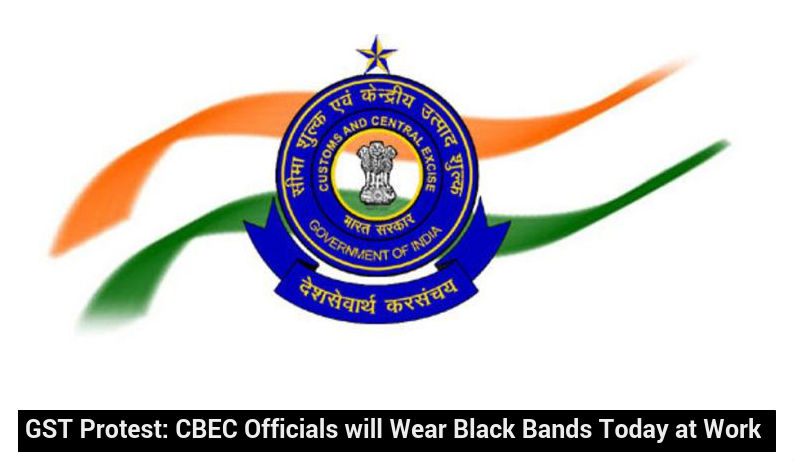Today tax officers will observe the Monday as a ‘black day’ and protest against the decision taken by GST council. The protest will show their dissatisfaction with the decision.
This came into light over the Goods and Services Tax (GST) Council’s decision to divide administrative turf between the Centre and states, despite a support by Finance Minister Arun Jaitley that the new indirect tax regime would create more job opportunities.
The officers have decided to go to work wearing black bands, the IRS Association (Customs and Central Excise) said, in reply to whether they were relaxing after the minister’s assurance.
The GST Council had decided states would have the power to assess and manage 90 per cent of the new tax payers, with annual turnover of less than Rs 1.5 crore. Over this outset, states and the Centre would have 50:50 ratio administrative control.
“GST is a joint venture between Centre and states. No one should feel let down. But, central officials have expertise of over 20 years on services and now will control only 10 per cent of assessees up to Rs 1.5 crore of turnover,” Majumder complained.
Unlike goods, you need deft handling in taxing of services, he said, particularly when there is inter-state sale and purchase. “You need expertise to determine the place of supply in intangibles.”
However, M S Mani of consultancy Deloitte Haskins & Sells says the apprehensions of central officials seem to be exaggerated. GST would increase the powers of both Centre and states , he said.
“Both, central and state officials, are going to become more powerful. I don’t think anyone is going to become less powerful,” Mani said.
Read Also: How will the Industry develop without the GST?
The Council had decided the comprehensive issue of administrative turf. It should now work out precise about who is going to do what and how will that be distributed, he added.
“Nobody’s role is going to be undermined. If GST is successful, it is going to significantly increase revenues, scope of work, role and powers of both central and state officials. However, the roles are going to be different from the present roles,” Mani said.
Jain said the central officials’ worry was on how well they’d be engaged. Of the 10 per cent of assessees up to Rs 1.5 crore of turnover (and the 50 per cent above that), it is understood that only up to five per cent could be taken up for scrutiny, he said. “So, their concerns are over how the officials will be engaged,” he said.
Adding: “A huge data will be generated under the GST regime. Somebody has to analyse it and make use of it. There would be enforcement issues, where lots of officials would be needed. Also, there would be an anti-profiteering body under the GST regime, where officials could be employed.”
